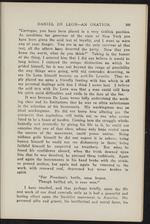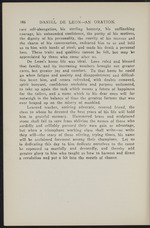| 1 |
 |
“...comrades deserting, to
see De Leon himself become an anti-De Lconitc. That re-
ply placed me upon a friendly footing with him which in all
my personal dealings with him I think I never lost. I believe
the acid test with De Leon was that a man could still keep
his spirit amid difficulties and smile in the face of the foe.
It was because De Leon never fully understood the work-
ing class and its limitations that he was so often unfortunate
in the selection of his lieutenants. His workingman was an
ideal workingman. He did not know how alluring are the
prospects that capitalism still holds out to one who seems
fated to be a beast of burden. Coming into the struggle whole-
heatedly and devotedly by giving his life to it, he could not
conceive that one of that class, whose only hope rested upon
the success of the movement, could prove untrue. Being
without pile himself he did not expect it in others; being
honest himself he could not see dishonesty in them; being
faithful himself he suspected no...”
|
|
| 2 |
 |
“...186
DANIEL DE LEONAN ORATION.
rare self-abnegation, his sterling honesty, his unflinching
courage, his unbounded confidence, the purity of his motives,
the dignity of his personality, the suavity of his manner and
the charm of his conversation, endeared him to us and held
us to him with bands of steel; and made his death a personal
loss. These traits and qualities cannot be felt, but may be
appreciated by those who come after us.
De Leons home life was ideal. Love ruled and blessed
that family, and its increasing numbers brought not greater
cares, but greater joy and comfort. To that home he could
go when fatigue and anxiety and disappointment and difficul-
ties beset him, and return refreshed, with doubts removed,
spirit buoyant, confidence unshaken and purpose undaunted,
to take up again the task which means a future of happiness
for the toilers, and a name which to his dear ones will far
outweigh in the balance of time the greatest fortune that was
ever heaped up on the misery of mankind...”
|
|
